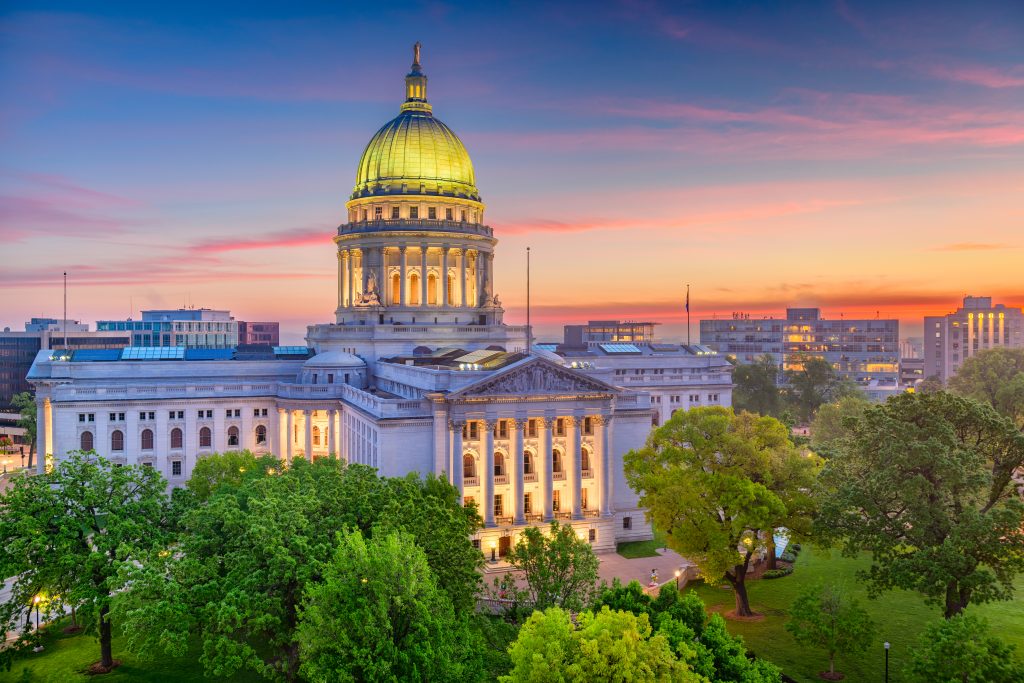On May 29th, we celebrate National Wisconsin Day in honor of The Badger State. Wisconsin became a state on May 29, 1848. The state’s name is an English version of a French adaptation of an Indian name said to mean “the place where we live.”
Rich in copper, lead, forest, and fertile farmland, Wisconsin became the 30th state. In 1634, French explorer Jean Nicolet was the first European to reach Wisconsin while seeking a Northwest passage to China.
A mining boom, not fur trading, led to the nickname The Badger State. According to oral history, the miners burrowed into the hillsides much like badgers for shelter instead of setting up more permanent homesteads. The first wave of settlers to the area also began uprooting the Ho-Chunk, Menominee, Chippewa, and other indigenous people.
Early in Wisconsin’s settlement, dairy production began to take root. By the turn of the century, the state became known for its dairy farms and synonymous with cheese.
Mining, dairies, and breweries grew one after the other. An influx of German immigrants in the 1850s brought a new brand of dreamers. Brewers cropped up across Wisconsin, satisfying the thirst of The Badger State. As with brewers in other regions of the country, the 18th Amendment of 1919 prohibiting alcohol drowned out much of the competition leaving only a handful after the legislation was repealed in 1933.
From Lake Michigan to Superior and numerous rivers and lakes in between, Wisconsin offers ample opportunity for water recreation and sport. There are also year-round trails perfect for summer hiking or substantial snow for winter activities.


